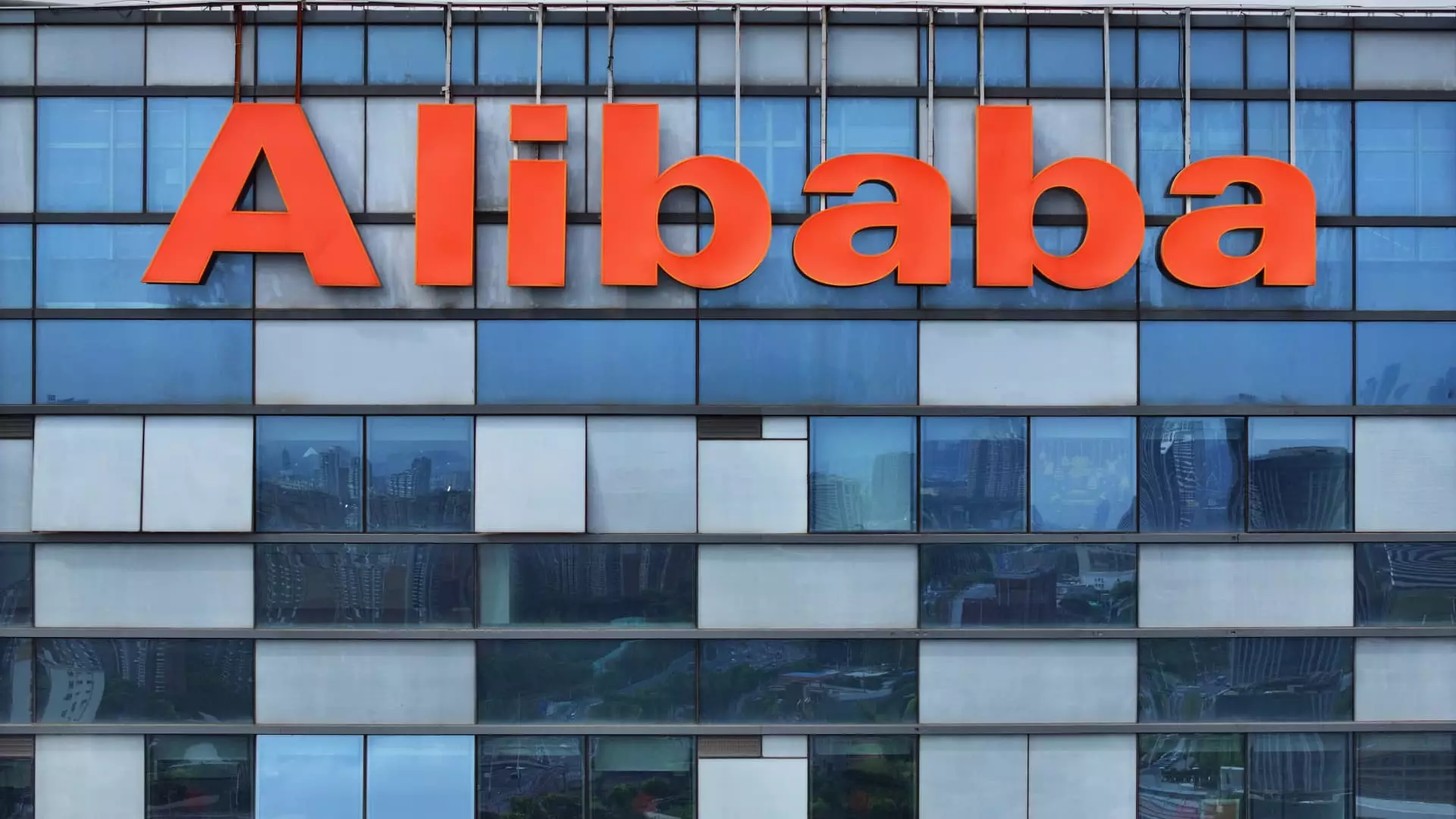On Friday, Alibaba’s share prices in Hong Kong experienced a significant surge, reflecting the robust quarterly performance of the company. The Chinese tech titan registered an impressive growth in its cloud Intelligence and e-commerce operations that defied the precarious economic landscape in China. As investors caught wind of these favorable results, Alibaba’s stock surged by as much as 11% before stabilizing at a 9.18% increase. This positive momentum not only underscores Alibaba’s strong market position but also hints at the company’s potential for ongoing expansion within the rapidly evolving tech sector.
Historically, Alibaba’s agility in navigating challenging economic conditions has set it apart from its peers. Recent optimism regarding the Chinese e-commerce market appears well-founded, as analysts such as those from Nomura forecast sustained momentum in the upcoming fiscal periods. The expected stimulation for Alibaba’s e-commerce segment comes primarily from newly instituted trade-in subsidies that the government has rolled out for consumers looking to upgrade their technology. Meanwhile, the Chinese government’s initiative to infuse 300 billion yuan (approximately $41.5 billion) into the economy through ultra-long special government bonds is seen as a tactical move designed to galvanize consumer spending and enhance business activity.
Revitalizing the Tech Sector through Innovation
The resurgence of Alibaba and other Chinese tech stocks can, in part, be attributed to the recent rise of AI-driven startups. For instance, DeepSeek, which has come into the spotlight with its advanced AI model known as R1, stands as a competitor to the U.S.-dominated AI ecosystem. This newfound focus on AI innovation has catalyzed a renewed sense of vitality in the Chinese tech sector, as market players pivot towards more advanced technological capabilities. Analysts are optimistic that the next three years will represent a critical juncture for Alibaba, particularly in its investment in AI and cloud infrastructure—a sector that has become increasingly crucial in a digital economy.
Jack Ma, Alibaba’s founder, has maintained a low profile since 2020, making headlines recently by attending a private meeting with President Xi Jinping. This gathering highlighted the government’s emphasis on empowering private enterprises and encouraging them to flourish in what Xi described as a “new era.” As Alibaba emerges from the shadow of an intense regulatory crackdown that began with the abrupt cessation of Ant Group’s IPO, its management appears poised to capitalize on new opportunities in the tech landscape.
Investments in AI: The Road Ahead
According to Barclays, Alibaba has begun to chart a new path forward with its AI cloud business, launching the Qwen 2.5-Max, an AI foundation model that has garnered notable interest. The demand for AI inference solutions—which comprise approximately 70% of their new demand—demonstrates the market’s recognition of the evolving needs within technology and commerce. However, analysts caution that seizing these promising opportunities will necessitate substantial investment. With plans to invest more in AI and cloud infrastructure over the next three years than it has in the past decade combined, Alibaba is setting the stage for transformative growth that could reshape the broader tech landscape.
The company’s recent quarterly report revealed a net income of 48.945 billion yuan (about $6.72 billion), exceeding market expectations of 40.6 billion yuan. This remarkable growth was over three times greater than net income from the previous year, emphasizing a striking turnaround for Alibaba’s profitability. Furthermore, its revenue for the quarter stood at 280.15 billion yuan, also outperforming analysts’ projections. Following the release of these compelling results, Alibaba’s shares listed in the U.S. surged by more than 8%, reflecting widespread investor optimism.
Alibaba’s impressive quarterly performance, combined with strategic investments in AI and cloud infrastructure, positions the company well as it navigates the challenges and opportunities in the current economic climate. The Chinese firm, while recovering from previous regulatory hurdles, is not merely restoring itself to its former glory but is instead redefining its trajectory as a leader in the tech industry. As it continues to innovate and adapt to the rapidly changing market landscape, Alibaba’s prospects appear robust, suggesting that both investors and businesses will be watching closely as they forge ahead into a promising new era.

Leave a Reply